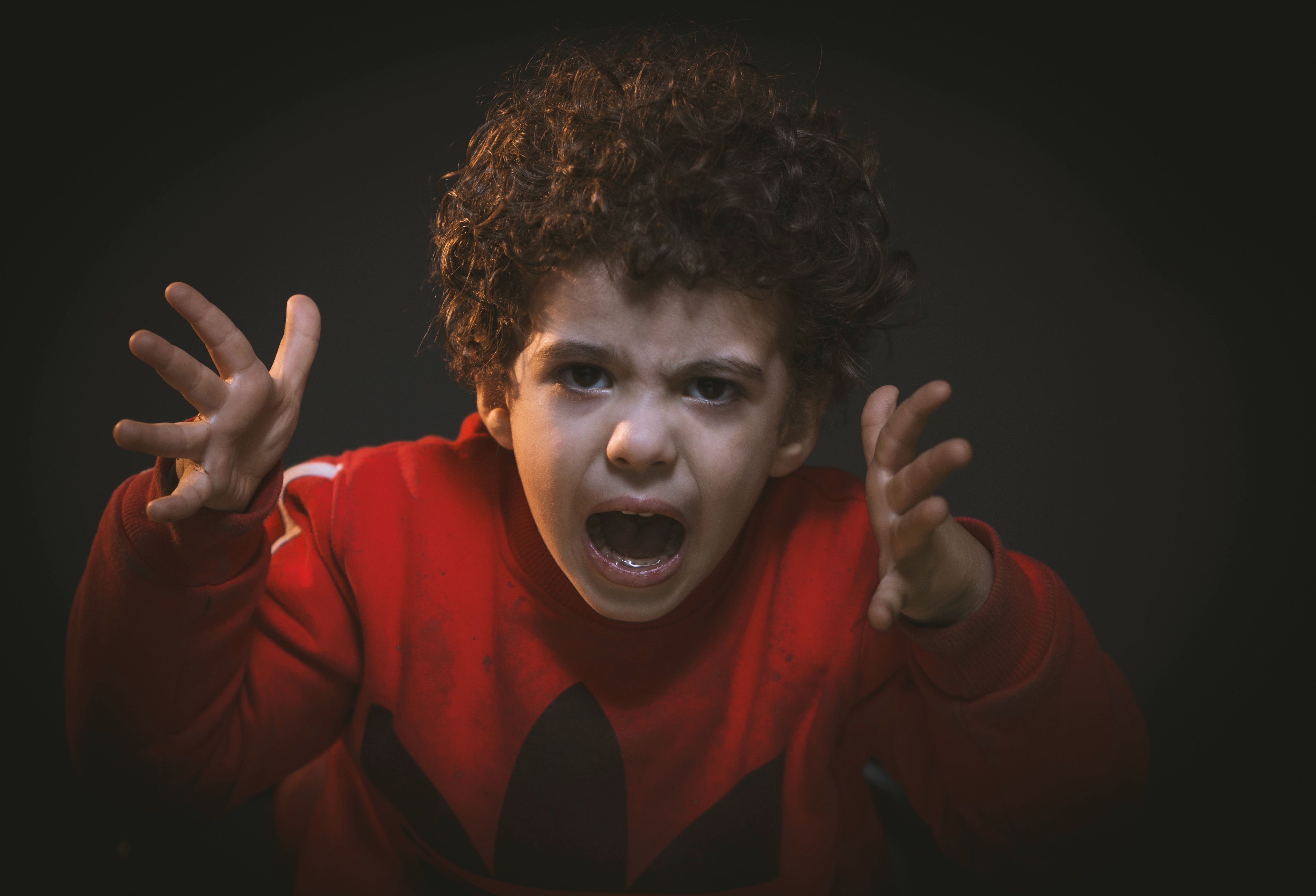
It’s in children’s nature to misbehave occasionally, test the boundaries their parents have set, and try and challenge authority when they don’t understand the point of some rules. All of these behaviors are simply part of growing up and finding their place in the universe.
However, depending on the severity of the behaviors and their frequency, they also might be a sign of underlying trouble.
Oppositional Defiant Disorder (ODD) is an increasingly common issue in children and teens that can cause problems in many social settings – at home, in school, and with their friends and loved ones. While it’s often misunderstood as simply acting out, there’s much more to this disorder than meets the eye.
Find out what the symptoms of oppositional defiant disorder are and learn more about the available treatments.
In this article
- What Is an Oppositional Defiant Disorder in Children?
- Children That Are at Risk of Oppositional Defiant Disorder
- Two Main Theories of Oppositional Defiant Disorder Cause
- Symptoms/Traits of Oppositional Defiant Disorder in Children
- How to Diagnose Oppositional Defiant Disorder
- Treatment Options for Oppositional Defiant Disorder

ODD is a mental health disorder that typically affects children between the ages of around 7 and 13, though it can manifest both a bit earlier and a bit later. Oppositional defiant disorder in adults is highly uncommon but not unheard of.
More often, ODD behaviors in adults are a symptom of another mental health condition, such as depression or even Intermittent Explosive Disorder (IED).
Oppositional defiant disorder in children usually involves disruptive behaviors, poor impulse control, and vindictive or spiteful outbursts.
Most commonly, these behaviors are expressed toward peers, parents and caregivers, and authority figures such as teachers. Very rarely are these bahaviors aimed toward strangers or animals, for instance.
Since ODD includes disruptive and vindictive behaviors, it’s often compared to conduct disorder (CD). However, examining conduct disorder versus oppositional defiant disorder, we can see that while there are some similarities, there are also major differences between the two. Whereas children with conduct disorder tend to be physically and verbally aggressive with people, animals, and property, those with ODD are not. They’re argumentative and disruptive, not aggressive.
Children with CD are also more prone to delinquent behaviors, lying and manipulation, and pretty crimes such as theft. Children with ODD don’t tend to exhibit such behaviors.
If you cannot differentiate between conduct disorder vs oppositional defiant disorder behaviors in your child, it’s in your best interest to seek help from a professional mental health service provider.

Oppositional defiant disorder is one of the most commonly diagnosed ones among children and young teens, more prevalent in boys than in girls. However, since it’s widely misdiagnosed as conduct disorder or simply taken as acting out, as mentioned earlier, it can be difficult to put a precise number on how many children have it.
It’s estimated that anywhere between 2% and 11% of children have ODD. As the child gets older and starts to enter adolescence, the prevalence of this disorder tends to decrease.
Furthermore, a child with another diagnosed mental health condition is more at risk of developing ODD. For instance, ADHD and oppositional defiant disorder are more closely correlated than it may seem. Over 40% of children with Attention Deficit Hyperactivity Disorder (ADHD) also have oppositional defiant disorder.
Like with most mental health disorders, it can be challenging to get down to the precise causes of oppositional defiant disorder. As discussed, children with ADHD are more likely to have ODD, but that doesn’t necessarily mean one disorder is causing another. After all, correlation doesn’t always mean causation.
With this in mind, there are two main theories about the possible causes of ODD – the learning theory and the developmental theory.
As the name might suggest, the ODD learning theory supposes that behaviors associated with ODD are learned ones. In a nutshell, children learn negative behaviors from negative reinforcement used by parents and caregivers.
For instance, if a parent tends to yell at them often, children will conclude that yelling is an acceptable form of communication. Alternatively, if parents tend to give in every time a child throws a tantrum, for instance, the child will learn that throwing a tantrum and misbehaving will ultimately get them what they want.
The development theory supposes that behaviors associated with ODD begin during the toddler years. Children with ODD might not have learned to be autonomous and independent at a young age, causing them to be highly emotionally attached to a caregiver and lash out when things don’t go their way.
This “lashing out” and other negative behaviors linked with ODD are understood as a continuation of toddler-like behavior. The normal developmental issues for toddlers that haven’t been resolved on time simply continue exhibiting as the child grows.

Oppositional defiant disorder symptoms can vary from one child to the next. They could be extreme, such as constant vindictiveness and frequent temper tantrums. Your child might rush to start arguments with any authority figure they interact with, whether that’s you, family members, or even teachers.
Alternatively, the symptoms could be surprisingly mild and almost imperceptible.
For instance, you might notice that your typically well-behaved and only slightly argumentative child completely dismisses any online boundaries you’re trying to set. They might be on their phone for hours after their screen time limit has passed and tend to visit all the sites you’ve told them not to, essentially forcing you to install parental control apps like FamiSafe.
As a general rule of thumb, the most common signs of oppositional defiant disorder include unusual irritability, misdirected anger, refusal to follow rules, and revenge-seeking. A child with ODD will also purposefully annoy others, blame others for their mistakes and wrongdoings, and speak harshly with their peers and caregivers.
Any child might occasionally experience any of the symptoms commonly associated with ODD. For example, it’s perfectly normal for a child to argue with a friend or caregiver. It’s expected to see a child test rules and boundaries, get angry over small things, and become irritable, especially after a draining day.
None of this conclusively means that your child has ODD.
For an ODD diagnosis, your child should have an established history of breaking the rules, losing their temper, getting easily annoyed, and being resentful. They should have a general tendency to argue with adults, purposefully hurt others, and blame them for their behaviors.
You should notice at least four of these behaviors to start suspecting ODD, which should continually occur over at least six months.
If you notice these ongoing symptoms, it’s in your best interest to schedule a consultation with a mental health services provider and start looking into oppositional defiant disorder therapies.

The first question on all parents’ minds when potentially encountering ODD is how to deal with oppositional defiant disorder – how to support their child and help them overcome their diagnosis.
Fortunately, oppositional defiant disorder treatment exists. There are many ways that you and mental health specialists can help your child deal with ODD.
Unlike with conditions such as ADHD, there are no approved medications for ODD that are guaranteed to alleviate the symptoms. However, some therapists might prescribe medications that should be used as an addition to therapy.
Most commonly, your child might receive stimulants, especially if they are also diagnosed with ADHD. If they have depression or anxiety, they might receive antidepressants. In the most extreme situations where the child’s behavior could lead to expulsion from school, for example, they might be given antipsychotics.
It cannot be stressed enough how critical it is not to self-medicate or get over-the-counter drugs for your child. Primarily, it might worsen their condition. Secondly, they might not even have ODD.
It’s critical that you consult your healthcare provider before you attempt any sort of ODD treatment. Your healthcare provider can give you a conclusive diagnosis and develop the best approach to treating this condition.
In some instances, especially when the child tends to lash out at their peers, group therapy might be the best course of action.
As the name suggests, group therapy involves a therapist working with several patients simultaneously. Everyone in the group can share their struggles and concerns and learn from others’ experiences.
Since ODD can usually lead to strained relationships with parents, friends, and others, group therapy can be highly effective.
Family therapy is often needed in addition to other oppositional defiant disorder treatments. In most instances, children with ODD tend to exhibit the worst behaviors at home. Home is where they feel the most comfortable, so they don’t have to worry much about their impulse control or behavior, like they do at school, for example.
ODD can put a strain on family relationships, so family therapy can help everyone learn how to better handle ODD symptoms.
Finally, cognitive behavioral therapy might be the most effective for children with ODD.
A so-called “talking therapy”, it allows your child to express their emotions, beliefs, and struggles in a safe environment. The therapist is there to help the child learn how to change how they think and behave, thus positively changing their environment.
Cognitive behavioral therapy is most commonly used for mental health disorders such as depression and anxiety, but it’s proven indispensable for conditions like ADHD and ODD as well.
Getting an ODD diagnosis for your child can be frightening, but treatments exist. It’s critical to diagnose the condition early and prevent it from evolving into more serious problems like conduct disorder or intermittent explosive disorder.
Since ODD typically harms any social relationships that the child may have, parents, caregivers, and educators must take an active part in helping the child overcome this condition.
